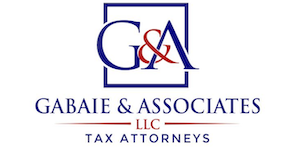Not reporting all of your income and assets to the IRS is a big deal, and the IRS will aggressively pursue if it discovers you didn’t report all of your income. But in some cases, failing to report all of your income can be unintentional. We often find that clients aren’t aware of the special rules surrounding cryptocurrency. If an employer or client pays you in cryptocurrency, you’ll need to pay taxes on that income. If you’ve made a profit from the sale of cryptocurrency, you need to pay taxes on the profit.
Failure to report all your income can result in hefty penalties, fines, and interest, as well as jail time. Despite these penalties, the IRS estimates that the U.S. loses billion in unpaid taxes every year because of unreported income. But how does the IRS know that you have unreported income or crypto assets?
How Does the IRS Find Unreported Income?
Sometimes the IRS finds unreported income in a straightforward manner. If your employer reports $100,000 of income paid to you and you only report $50,000, the IRS will know right away. But often, the IRS will need to dig a bit more. If the IRS suspects unreported income, it will often perform a bank account analysis or a T-account analysis.
1. Bank Account Analysis: The IRS will request all of your bank account deposit activity and compare this to your reported income. Of course, you don’t have to report some income or deposits on your taxes. Unreported income might include life insurance proceeds, gifts, loans, and some inheritances.
2. T-account Analysis: For this analysis, the IRS will compare sources of cash with expenditures. Essentially, the auditor will be checking to see if you have sufficient income to cover what you spent. The Treasury Department used this method to convict the infamous mob boss, Al Capone.
How Does the IRS Find Unreported Crypto Assets?
The IRS can find income from cryptocurrency payments or profits in the same manner it finds other unreported income – through 1099s from an employer, a T-analysis, or a bank account analysis. Your 2020 tax form even specifically asks about cryptocurrency income,stating, “At any time during 2020, did you receive, sell, send, exchange, or otherwise acquire any financial interest in any virtual currency?” It’s never a good idea to lie on your tax return. Even if you purchased some Bitcoin but had no taxable transactions in 2020, you would still answer yes to this question.
While the IRS may allow people to fix an error in reporting cryptocurrency right now, they’re unlikely to continue to do so. With cryptocurrency profits in the news and rising fast, it’s hard for people to argue that they didn’t know they needed to report these profits to the IRS.
Hire an Experienced Tax Attorney
If you’re facing issues with the IRS due to unreported income or cryptocurrency assets, you need advice from an experienced tax attorney. The skilled tax attorneys at Gabaie & Associates, LLC have many years of experience guiding our clients through IRS investigations and solving complicated tax problems. Contact Gabaie & Associates, LLC online for a free consultation or give them a call at 410-358-1500.

